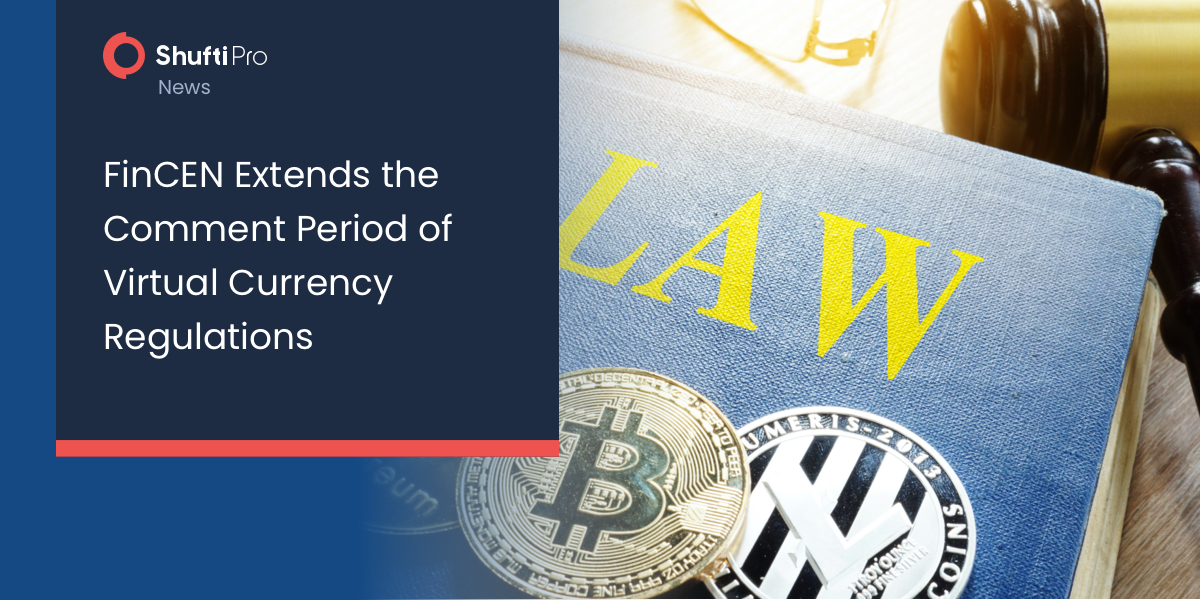FinCEN Extends the Comment Period of Virtual Currency Regulations

FinCEN– Financial Crimes Enforcement has finally agreed to reopen the comment period of regulating the digital currency. After the criticism from the firms dealing with the virtual asset, FinCEN has extended the comment period for the regulations that were proposed earlier. These regulations were related to Legal Tender Status, and Convertible Virtual Currency (CVC).
Notice of Proposed Rulemaking (NPRM) required the banks and money service businesses to keep records, submit reports, and carry out identity verification of each customer regarding the transactions involving Convertible Virtual Currency and Legal tender status.
FinCEN extends comment period for controversial crypto wallet rule.
by @KReyofCoinDesk https://t.co/QVzzYlTwyt
— CoinDesk (@CoinDesk) January 14, 2021
The recent notice has identified the Anti-Money Laundering Act of 2020 and provides additional information related to reporting form and the extension of the comment period. An additional 15 days of the extension has been assigned by FinCEN for the comment period on the reporting requirements related to information on LTDA or CVC transactions. The Proposed rule requires the reporting of transactions more than $10,000 or totalling to more than $10,000 including the unhosted wallets or even wallets that are hosted in FinCEN identified jurisdictions. FinCEN has extended the comment period to additional 45 days that require banks and money service business to report information in regards to counterparties to transactions by the customer’s of their hosted wallets and proposed recordkeeping requirements.
FinCEN has received a robust response from the commenters and has received more than 7,500 comments during the initial comment period. FinCEN is looking forward to receiving more comments in this additional comment period and hopes to continue actively engaging with the cryptocurrency to make sure that innovation comes with proper compliance with anti-money laundering regulations and national security risks.

 Explore Now
Explore Now













